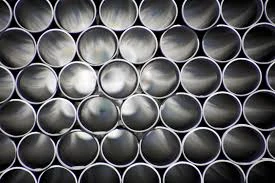
-
 Afrikaans
Afrikaans -
 Albanian
Albanian -
 Amharic
Amharic -
 Arabic
Arabic -
 Armenian
Armenian -
 Azerbaijani
Azerbaijani -
 Basque
Basque -
 Belarusian
Belarusian -
 Bengali
Bengali -
 Bosnian
Bosnian -
 Bulgarian
Bulgarian -
 Catalan
Catalan -
 Cebuano
Cebuano -
 China
China -
 China (Taiwan)
China (Taiwan) -
 Corsican
Corsican -
 Croatian
Croatian -
 Czech
Czech -
 Danish
Danish -
 Dutch
Dutch -
 English
English -
 Esperanto
Esperanto -
 Estonian
Estonian -
 Finnish
Finnish -
 French
French -
 Frisian
Frisian -
 Galician
Galician -
 Georgian
Georgian -
 German
German -
 Greek
Greek -
 Gujarati
Gujarati -
 Haitian Creole
Haitian Creole -
 hausa
hausa -
 hawaiian
hawaiian -
 Hebrew
Hebrew -
 Hindi
Hindi -
 Miao
Miao -
 Hungarian
Hungarian -
 Icelandic
Icelandic -
 igbo
igbo -
 Indonesian
Indonesian -
 irish
irish -
 Italian
Italian -
 Japanese
Japanese -
 Javanese
Javanese -
 Kannada
Kannada -
 kazakh
kazakh -
 Khmer
Khmer -
 Rwandese
Rwandese -
 Korean
Korean -
 Kurdish
Kurdish -
 Kyrgyz
Kyrgyz -
 Lao
Lao -
 Latin
Latin -
 Latvian
Latvian -
 Lithuanian
Lithuanian -
 Luxembourgish
Luxembourgish -
 Macedonian
Macedonian -
 Malgashi
Malgashi -
 Malay
Malay -
 Malayalam
Malayalam -
 Maltese
Maltese -
 Maori
Maori -
 Marathi
Marathi -
 Mongolian
Mongolian -
 Myanmar
Myanmar -
 Nepali
Nepali -
 Norwegian
Norwegian -
 Norwegian
Norwegian -
 Occitan
Occitan -
 Pashto
Pashto -
 Persian
Persian -
 Polish
Polish -
 Portuguese
Portuguese -
 Punjabi
Punjabi -
 Romanian
Romanian -
 Russian
Russian -
 Samoan
Samoan -
 Scottish Gaelic
Scottish Gaelic -
 Serbian
Serbian -
 Sesotho
Sesotho -
 Shona
Shona -
 Sindhi
Sindhi -
 Sinhala
Sinhala -
 Slovak
Slovak -
 Slovenian
Slovenian -
 Somali
Somali -
 Spanish
Spanish -
 Sundanese
Sundanese -
 Swahili
Swahili -
 Swedish
Swedish -
 Tagalog
Tagalog -
 Tajik
Tajik -
 Tamil
Tamil -
 Tatar
Tatar -
 Telugu
Telugu -
 Thai
Thai -
 Turkish
Turkish -
 Turkmen
Turkmen -
 Ukrainian
Ukrainian -
 Urdu
Urdu -
 Uighur
Uighur -
 Uzbek
Uzbek -
 Vietnamese
Vietnamese -
 Welsh
Welsh -
 Bantu
Bantu -
 Yiddish
Yiddish -
 Yoruba
Yoruba -
 Zulu
Zulu
Top Suppliers of High-Quality Fiberglass Grating for Various Applications
Fiberglass Grating Suppliers A Comprehensive Guide
Fiberglass grating is an essential material used in various industries due to its unique properties and advantages over traditional materials. It is made from reinforced fiberglass, making it strong, lightweight, and resistant to corrosion, chemicals, and UV damage. This makes fiberglass grating an ideal choice for many applications, including industrial flooring, walkways, and platforms. In this article, we will explore the key aspects of fiberglass grating suppliers, including what to consider when choosing a supplier, the benefits of fiberglass grating, and an overview of the market.
Understanding Fiberglass Grating
Fiberglass grating comes in various shapes and sizes, with options for both molded and pultruded styles. Molded fiberglass grating is produced by combining resin and fiberglass under heat and pressure, resulting in a durable and slip-resistant surface. On the other hand, pultruded fiberglass grating is made by pulling continuous strands of fiberglass through a resin bath and into a heated die, producing a stronger, more rigid product. Both types offer excellent load-bearing capabilities and are lightweight, making them easy to transport and install.
Benefits of Fiberglass Grating
1. Corrosion Resistance One of the most significant advantages of fiberglass grating is its resistance to corrosion and chemical damage. This feature makes it suitable for harsh environments, such as chemical processing plants, wastewater treatment facilities, and marine applications.
2. Lightweight Fiberglass grating is significantly lighter than steel or aluminum grating, which reduces transportation costs and simplifies installation processes. The lightweight nature of fiberglass also lessens the load on support structures.
3. Safety Many fiberglass gratings come with anti-slip surfaces, providing a safer walking environment in wet or hazardous conditions. This feature is especially critical in industrial settings where accidents can lead to severe injuries.
4. Low Maintenance Fiberglass grating requires minimal maintenance compared to traditional materials. It does not require painting or sealing, and its resistance to chemicals means it is less likely to degrade over time.
5. Design Flexibility With a variety of colors and designs available, fiberglass grating can be tailored to meet aesthetic requirements for various applications, whether for commercial or industrial use.
fiberglass grating suppliers

Choosing a Fiberglass Grating Supplier
When selecting a fiberglass grating supplier, several factors should be considered
1. Experience and Reputation Choose a supplier with a proven track record in the fiberglass industry. Research customer reviews and testimonials to gauge the supplier’s reliability and quality of products.
2. Product Range Look for suppliers that offer a wide range of fiberglass grating products. This variety ensures that you can find the appropriate grating type for your specific application, whether it's molded, pultruded, or custom-designed.
3. Quality Assurance Ensure that the supplier adheres to industry standards and has quality control measures in place. Certifications and compliance with regulations can serve as an assurance of product quality.
4. Customer Support Assess the level of customer service the supplier provides. A responsive team that assists in product selection, technical specifications, and after-sales support can make a significant difference.
5. Pricing While cost should not be the only determining factor, it remains essential. Compare quotes from different suppliers and ensure that you’re getting good value for your investment without compromising on quality.
Conclusion
Fiberglass grating is a valuable material for a variety of industries, and choosing the right supplier is crucial for ensuring quality and reliability. By considering factors such as experience, product range, quality assurance, customer support, and pricing, you can make an informed decision. As the demand for durable and lightweight materials continues to rise, fiberglass grating suppliers play a vital role in providing solutions that meet the needs of different applications.









